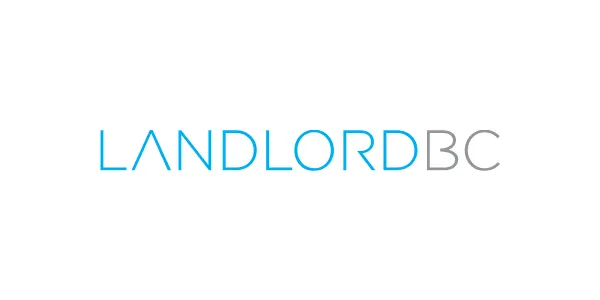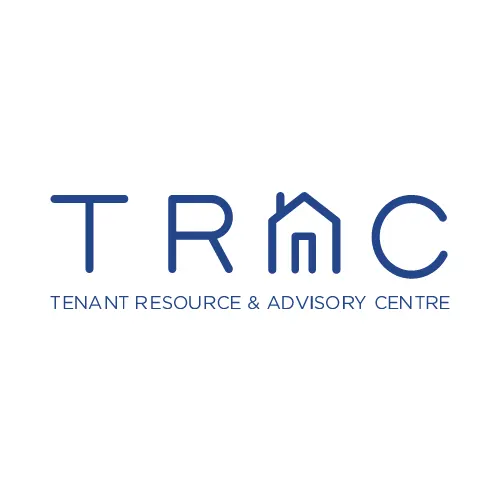
In BC, all renters are governed by the same laws.
It can be a shock to discover that your rights as a renter differ from those of the renter next door — especially if it means you can be evicted more easily. While most types of rental arrangements in the province are covered by British Columbia’s main residential tenancy law, some aren’t. Learn what laws apply to you, find answers to common questions, and know where to go for help when there's a problem.
What you should know
"I moved into a rental unit as Jordan's roommate. It didn't go well. Within a month, Jordan gave me two weeks notice to leave. Wait, what? I thought only a landlord could evict me. And I thought I got a month’s notice. But I learned that roommates aren't covered by the main tenancy law. And if I wanted to dispute the notice, I'd have to bring a legal action."
– Monica, Vancouver, BC

Most rental housing situations in BC are governed by the Residential Tenancy Act. This is BC’s main law setting out protections for tenants and landlords. It applies to a broad range of rentals, from apartments to secondary suites to rented strata units.
But some types of rentals fall outside this main law. For example, if you live in a mobile home park, you’re subject to a different tenancy law (covered here). If you live in a co-op that you are a member of, there’s a different law for you as well (covered here).
A tricky area is roommate arrangements. A roommate who rents from a tenant who lives in the rental unit isn’t protected by the Residential Tenancy Act. If they get into a dispute, they must look elsewhere, such as to general contract law. (To be clear: a roommate who is listed on the tenancy agreement with the landlord is covered by the main tenancy law.)
Learn which laws govern your tenancy.
The information below applies to tenancies covered by the Residential Tenancy Act.
Most tenancy law in BC is run through a government agency. It’s called the Residential Tenancy Branch. Here's their website. They help tenants and landlords resolve problems by providing a formal dispute resolution process that’s quicker and more targeted than going to regular court. We explain this process shortly.
Tenant must-do's before renting
Inspect the rental unit carefully, with the landlord, and make sure it’s suitable.
Read the tenancy agreement before signing it.
Know who the landlord is and get their full name, address, and phone number.
The landlord must prepare a tenancy agreement
The law says a landlord must prepare a written tenancy agreement for every tenancy. This agreement must cover the basic terms of the tenancy — things like the length of the tenancy, the rent and when it’s due, the amount of the security deposit, and the services you get. The Residential Tenancy Branch has a tenancy agreement template. Make sure all services included in your rent are checked off on page two of the tenancy agreement template; this will protect you against rate increases.
Both you and the landlord must sign and date the tenancy agreement. Within 21 days of entering into the agreement, the landlord must give you a copy of the agreement.
If a landlord doesn’t prepare a tenancy agreement, standard terms imposed by the law apply to the tenancy.
The landlord must complete a condition inspection report
You and the landlord must do a walkaround before you move in, checking the rental unit out together. This is sort of like inspecting a rental car before you drive off. You make sure any dents or scratches are documented so you don’t end up paying for damage you didn’t cause!
The landlord must complete a condition inspection report, and both of you need to sign it. This is a written record of the condition of the place. The report should show if it's in poor condition. There may be stains on the rug or holes in the walls. It’s important you clearly note things like this on the inspection report. The report can include photographs. This report can prove useful if there’s a disagreement later.
The landlord must give you a copy of the condition inspection report within seven days after the inspection is completed.
Here's an overview of key responsibilities of tenants and landlords under BC’s residential tenancy law.
Tenants are responsible for:
paying rent and other fees in the tenancy agreement on time
keeping the rental unit and common areas clean
repairing any damage they or their guests cause, as soon as possible (this doesn't include reasonable wear and tear)
telling the landlord of any needed repairs or problems, such as mice, cockroaches, or bedbugs
not disturbing other people living in the building or neighbouring property and not letting guests do so either
Landlords are responsible for:
making sure the rental unit and the building are reasonably safe, healthy, and suitable to live in
providing a written tenancy agreement, inspection reports, and receipts for rent or other fees paid in cash
doing repairs and keeping the rental unit and building in good shape
ensuring the rental unit and building has proper heating, plumbing, electricity, locks, walls, floors, and ceilings (with no water leaks or holes)
maintaining anything included in the tenancy agreement, such as the fridge, stove, laundry facilities, garages, and storage sheds
paying the utility bills if utilities are included in the rent
Your landlord can evict you, via a notice to end tenancy, for various reasons. You can dispute all of them. The most common reasons are as follows.
Notice must be given using the proper form
Landlords must give proper notice to tenants if they plan to end a tenancy. There are different notice forms required for different situations. The forms are on the Residential Tenancy Branch website. There are also rules about how and when a landlord can serve notice. The branch explains them here.
For failing to pay rent
You have to pay the rent. In full and on time. If you don’t, the landlord can give you a 10-day notice to end tenancy for non-payment. Then you have five days either to pay all the rent owing — which cancels the notice — or to apply for dispute resolution. Otherwise, from the moment you receive the notice you have 10 days to move out.
If you do nothing — no rent payment, no dispute — the landlord can apply to the government for an order of possession. The order can be issued without further input from you.
A landlord cannot seize your personal property or lock you out for failing to pay rent, unless they have obtained an order of possession and gone through the correct process to hire court-approved bailiffs. Otherwise, if a landlord takes any of your belongings, you can apply for dispute resolution through the Residential Tenancy Branch (see below for details). You can ask that the landlord return the property or pay you for it.
For cause
This means the landlord says you’ve broken the tenancy agreement for some other reason. They can give you one month’s notice. You have 10 days to dispute this kind of notice. The most common cause is a pattern of late rent payments. Other kinds of cause: you’ve been disturbing other occupants, seriously damaged the rental unit or the building, or had too many people living in the unit.
Or the landlord might claim you’ve been taking part in illegal activity that harms — or is likely to harm — the building or other occupants. Or you’ve broken a rule in the tenancy agreement and ignored the landlord’s written notice.
For use by landlord or purchaser or their close family member
Your landlord or a new purchaser might decide they want the rental unit for themselves or a close family member. In this case you must be given two months’ notice. You have 15 days to dispute. If you receive this two-month notice to end your tenancy, you’re entitled to one month’s rent.
If the landlord issues this notice and then fails to follow through on their plan within a reasonable time, they must pay you 12 months’ rent. You have to apply to the Residential Tenancy Branch to get this extra compensation.
A fixed-term lease and landlord’s use
A fixed-term tenancy cannot be ended early for landlord’s use of the property. For example, if you are partway through a one-year lease, any attempt to evict you for landlord use would not take effect until the one year was up. Any two-month notice you received on an earlier date would take effect at that time.
For demolition or conversion
The landlord has the right to demolish a rental unit or convert it to condos or a non-residential use (such as a shop). But if that’s their plan, they must give you four months’ notice. You have 30 days to dispute. If your landlord issues a four-month notice to end a tenancy, you’re entitled to one month’s rent.
If your landlord issues this notice, they must follow through on their demo or conversion plan. If they fail to take steps toward their plan within a reasonable time or fail to use the place for the stated purpose for at least six months, they must pay you 12 months’ rent. Again, you have to apply to the Residential Tenancy Branch to get this extra compensation.
For renovation or repairs
New process for renovictions
"Renoviction" is a term used to describe an eviction that is carried out to renovate or repair a rental unit. As of 2021, the process changed to end a tenancy for renovations or repairs. The landlord must apply to the Residential Tenancy Branch, which will schedule a hearing. Learn more.
A landlord can seek to evict you (with four months’ notice) in order to do major renovations that require a unit to be empty for an extended period. However, unlike other types of evictions, the landlord is required to apply for an order of possession through the Residential Tenancy Branch. They can’t just serve an eviction notice on you. The branch will schedule a hearing, where the landlord will have to show that ending the tenancy is the only way to complete the renovations, and that they have all the necessary permits and approvals in place. If the branch okays the renovations, you’re entitled to one month’s rent.
If the landlord fails to follow through on their renovation plan within a reasonable time, they must pay you 12 months’ rent. You have to apply to the Residential Tenancy Branch to get this extra compensation.
A fixed-term lease and getting renovicted
A fixed-term tenancy cannot be ended early for renovations or repairs. For example, if you are partway through a one-year lease, any attempt to evict you to renovate or repair the unit would not take effect until the one year was up. Any four-month notice you received on an earlier date would take effect at that time.
You must give your landlord written notice to end your tenancy. The notice must include the address of the rental unit and the date you are moving out.
For a month-to-month or periodic tenancy, the landlord must receive your notice at least one month before the effective date of the notice and before the final month’s rent is due.
For a fixed-term tenancy that requires you move out at the end of the term (such as where the landlord plans to use the unit), you needn’t give the landlord notice. But if you’re in a fixed-term tenancy that doesn’t require you to move out at the end of the term, then you must give your landlord written notice that you’re leaving. And you must do so at least one month before the effective date of the notice and before the day that rent is due.
You may also be able to end a tenancy if your landlord breaches a material term. For example, if they refuse to provide essential services such as heat, electricity or water. You must first give written warning that a term has been breached and ask the landlord to fix the breach. If after a reasonable time the landlord still hasn’t done so, you can end the tenancy (after giving the landlord written notice).
Dispute resolution is the formal process for resolving disputes between landlords and tenants. The process involves a hearing — like a court hearing, but less formal. Hearings are usually by phone teleconference. Both landlords and tenants can explain their side of the case and call witnesses to do the same.
The Residential Tenancy Branch explains how to apply for dispute resolution. The branch also offers tips on how to prepare for a hearing, and how to ask for review of a decision.
Applying for dispute resolution
A tenant or landlord can apply online or at a branch office, unless there isn’t one nearby. Then, they apply at a Service BC office. There’s an application fee.
If you apply for dispute resolution, you'll receive an information package that you must serve on (give to) the other side, in person or by registered mail.
At the hearing
Both sides have an opportunity to present evidence related to the claim. An arbitrator makes a final and legally-binding decision.
Review of a decision
Either landlord or tenant may apply to the Residential Tenancy Branch for a review of the arbitrator’s decision.
A review may only be considered if:
one of you couldn’t attend the hearing due to circumstances you couldn’t foresee or control, or
new evidence has come to light since the hearing, or
one of you has evidence that the decision was obtained by fraud.
Common questions
Yes. At the beginning of your tenancy, the landlord can make you pay up to a half-month’s rent as a security deposit. (The landlord can’t require another deposit if the rent goes up during the tenancy.)
You have to pay the security deposit within 30 days of moving in. If you don’t, the landlord can give you a one-month notice to evict. You should always get a receipt for the security deposit. A landlord has to give a receipt if you pay with cash.
A landlord can also require a pet damage deposit of another half-month’s rent — but only one deposit, no matter how many pets you have.
At the end of your tenancy, the landlord must pay interest on security and pet damage deposits when returning those deposits to you — at the rate the BC government sets each year (which is typically 0%, unfortunately). If your landlord is being sketchy about returning your security deposit, check out our Q&A below.
A landlord can charge a non-refundable fee of up to $25 for late payment of rent, but only if this term has been written into your tenancy agreement.
They can charge a non-refundable fee for things like additional keys, access devices, and garage door openers, and to replace these things. They can also charge a non-refundable fee for certain other things, such as a service charge from a financial institution if a rent cheque bounces.
In all cases, the fees can’t be more than the actual cost of the items.
The Tenant Resource & Advisory Centre has more on fees.
A landlord can increase rent only once in a 12-month period and only by the amount allowed under the Residential Tenancy Act. The Residential Tenancy Branch website includes a rent increase calculator. Before increasing rent, a landlord must give you three full months’ notice using the form called notice of rent increase. The landlord must also serve the notice on you in the way the Act requires.
Savvy landlords might try to move certain aspects of your tenancy outside of the main agreement. This could be something like a parking space or a storage locker. The reason for this is future rate increases wouldn’t be capped under the Residential Tenancy Act rules. So try to ensure everything you’re paying for gets included in the tenancy agreement.
A tenant can sublet their tenancy agreement with the consent of the landlord. The landlord’s consent is always required, but the landlord must not unreasonably withhold consent if you have a fixed-term tenancy with at least six months remaining on it.
The Tenant Resource & Advisory Centre has a template letter to request permission to sublet.
Like a sublet, you can assign your rights under the standard tenancy agreement with the consent of the landlord. An assignment substitutes somebody into your shoes — they become the tenant, with the same rights and responsibilities you once had. Again, you’ll need the consent of the landlord to do this. They may not want to if you’re paying below-market rent. If you suspect that’s the reason, you can apply for dispute resolution.
If a tenant gets a roommate who doesn't have a tenancy agreement with the landlord, the roommate is not covered by the Residential Tenancy Act. That's because there is no contract between the roommate and the landlord.
As a result, disputes between tenants and roommates aren't handled by the Residential Tenancy Branch. Instead, the parties would have to go to the Civil Resolution Tribunal (for disputes up to $5,000) or Small Claims Court (for disputes from $5,000 to $35,000).
Make a roommate agreement
The Tenant Resource & Advisory Centre has a roommate agreement template. It's meant to help prospective roommates think about what rules they want to agree to before moving into a rental unit together.
Under the Residential Tenancy Act, a landlord can’t enter your unit, unless in the case of one of the following circumstances:
they have your permission
they have a good reason, such as doing repairs or showing the unit to potential tenants or purchasers, and they've given you between 24 hours and 30 days written notice, saying what date and time they want to come in
they want to inspect the rental unit (they can do this once a month — as long as they give notice as described in the point above)
they get an order from the Residential Tenancy Branch to enter the rental unit
there's an emergency, like a fire or flood
Except in an emergency, a landlord can come in only between 8 am and 9 pm — unless you agree to other times.
Neither you nor the landlord may change locks, except in an emergency, if you both agree in writing, or if there is an order from the Residential Tenancy Branch that allows a party to change the locks.
Under the Residential Tenancy Act, a tenant is entitled to quiet enjoyment of their rental unit. This includes the right to reasonable privacy and to be free from unreasonable disturbance.
A landlord can’t interfere, or let other occupants or employees interfere, with your right to quiet enjoyment of your unit. Noise, sights, and smells can all interfere with quiet enjoyment.
If you have noisy neighbours, you can call the police, as well as the landlord. The outcome in part depends on any noise bylaw where you live. Some municipalities and some condo buildings, for example, prohibit noise after a certain time at night. We explain this in our coverage on noise and neighbours.
You can’t withhold rent if your landlord or other tenants interfere with your privacy or quiet enjoyment. However, you can apply for dispute resolution and compensation. For how to do this, see what you should know, above.
Template letter for loss of quiet enjoyment
The Tenant Resource & Advisory Centre has a template letter to help you complain about loss of quiet enjoyment. The letter is addressed to the landlord, who has a legal obligation to make a reasonable effort to correct the situation. If the landlord fails to protect your right to quiet enjoyment, you can take them to dispute resolution.
A tenant can have guests — and a landlord cannot unreasonably restrict a tenant’s guest from coming onto the rental property. But if it looks like the guests have moved in, you may be breaking the tenancy agreement. The landlord may increase the rent — but only if the tenancy agreement allows for a rent increase if more people move into the rental unit. Or the landlord may try to end the tenancy because of an unreasonable number of occupants.
If a landlord won’t make a necessary repair, you should first talk to them. If there's still no action, make a written request to the landlord to make the repair. If that doesn’t work, you can apply for dispute resolution. See above, under what you should know, for details.
You shouldn't withhold rent, nor should you pay for the repairs, hoping the landlord will pay you back — unless the landlord has agreed in writing to do so.
Template letter to request repairs
When something needs to be fixed in your rental unit, let your landlord know in writing as soon as possible. The Tenant Resource & Advisory Centre has a template letter to request repairs.
A landlord can take away a service (but not an essential service) if they give you 30 days’ written notice and reduce the rent by the value of the cancelled service. (Essential services include heat, electricity, and water.)
At the end of a tenancy, here's the framework around the return of security deposits.
The condition inspection report
At the end of the tenancy, you and the landlord together must do an inspection of the rental unit. The landlord must complete a condition inspection report.
(A landlord who doesn’t complete the report may lose the right to claim against the security deposit for any damages to the unit or building. A tenant who doesn’t do the inspection may lose the right to get their security deposit back.)
The landlord must give you a copy of the inspection report within 15 days after you move out or when they get your forwarding address — whichever is later.
The landlord must do one of three things
After you move out and give them a forwarding address in writing, the landlord must do one of the following things within 15 days:
return the security deposit and any pet damage deposit with interest
ask you to agree in writing to any deductions the landlord wants to keep, and then return the rest of the deposits
file a dispute resolution application asking to keep some or all of the deposits
If the landlord does none of these things
If the landlord fails to do any of these things, you may be able to get double your deposit back.
If you give the landlord your written forwarding address within one year of moving out, but the landlord doesn’t return the deposit, you can apply for this remedy. You’d apply to the Residential Tenancy Branch for dispute resolution and an order that the landlord return double the deposit. You have two years — from the last day of your tenancy— to apply for this.
If you don’t give the landlord your forwarding address within one year of moving out, they can keep the security deposit and the pet damage deposit.
More on getting the security deposit back
The Tenant Resource & Advisory Centre has more on getting your deposit back, including a template letter to request its return. The Residential Tenancy Branch offers a tool that calculates when the deposit must be returned by.
Who can help

Tenant Resource & Advisory Centre (TRAC)
Help and advice for tenants experiencing legal problems.

Access Pro Bono Residential Tenancy Program
Free legal assistance and representation to low- and modest-income tenants.

Residential Tenancy Branch
BC government agency that helps tenants and landlords resolve problems.

Landlord BC
Information and advice for landlords and property managers throughout BC.

